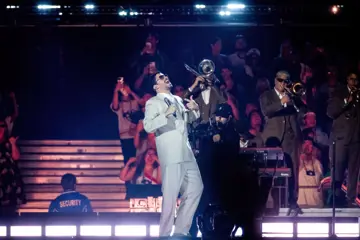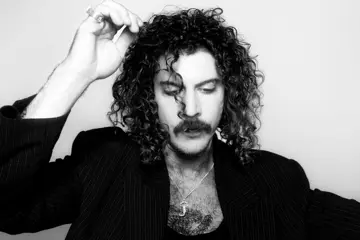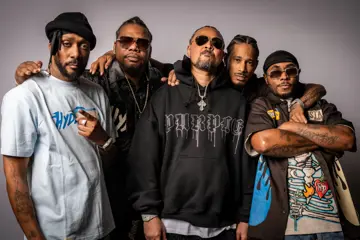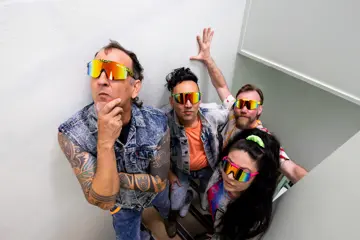It’s the musical controversy that has spawned NSFW headlines around the world. Last Friday a Russian court sentenced three members of provocative punk ensemble PUSSY RIOT to two years in prison for "premeditated hooliganism performed by an organized group of people motivated by religious hatred or hostility".
It’s a verdict that has spawned international condemnation from politicians and pop stars, and raised serious questions about protest, free speech and the state of Russian ‘democracy’.
Earlier in the year, Pussy Riot members were detained after playing a song in Red Square that criticized Russian President Vladimir Putin, but it's their follow-up protest that has became an international issue. In early March, four members of the group donned masks, ran into a Moscow's Cathedral of Christ the Savior and played the inflammatory track “Mother of God, Put Putin Away”. After footage surfaced online, three members were arrested: Maria Alyokhina, Nadezhda Tolokonnikova and Yekaterina Samutsevitch.
The three were detained without a trial date for months, despite Alekhina and Tolokonnikova having young children. They received public support from Madonna, Paul McCartney, the Red Hot Chili Peppers, and prominent figures around the world (including the Mayor of Reykjavik who dressed up as a member of Pussy Riot for a gay pride parade). Defense lawyers pointed out that the lyrics of the allegedly hateful song don’t refer to the Church at all, and likened proceedings to a show trial from the Soviet era.
Don't miss a beat with our FREE daily newsletter
Former world chess champion Gary Kasparov joined protests against the verdict and was beaten and arrested by police. Through it all, Pussy Riot were the perfect defendants, smiling fearlessly in the face of seven years imprisonment and firing barbs at Putin, the legal system and just about every part of the Russian establishment—in the process, becoming the punk heroes of our age.
If you burst into a church anywhere in the world and played a surprise punk set, you’d probably have to explain yourself to a few security guards, police officers or magistrates. But the severity of the sentences handed to two young mothers for a blatantly exaggerated charge of “religious hatred”, along with the seemingly arbitrary legal process, has raised serious questions about why Pussy Riot was really on trial.
What next? Defense lawyers have indicated they will appeal the verdict with little expectation of a reversal. Pussy Riot has also clarified that they will not ask for a pardon from “such a bastard” as Putin. Hot on the heels of the verdict was their latest single, “Putin Lights Up The Fires”. You don’t need to understand Russian to work out that it’s a searing indictment; three minutes of blazing Riot Grrrl that proves reports of punk’s death have been greatly exaggerated.
Russia might seem far away, but the questions raised by the Pussy Riot trial could apply anywhere in the world. Oppressing art is one way to suppress dissent, and dissent is essential for healthy democracy. Get informed, and keep talking—two years is a long time and this issue is too important to be forgotten.
Words by Matthew Nielson


















